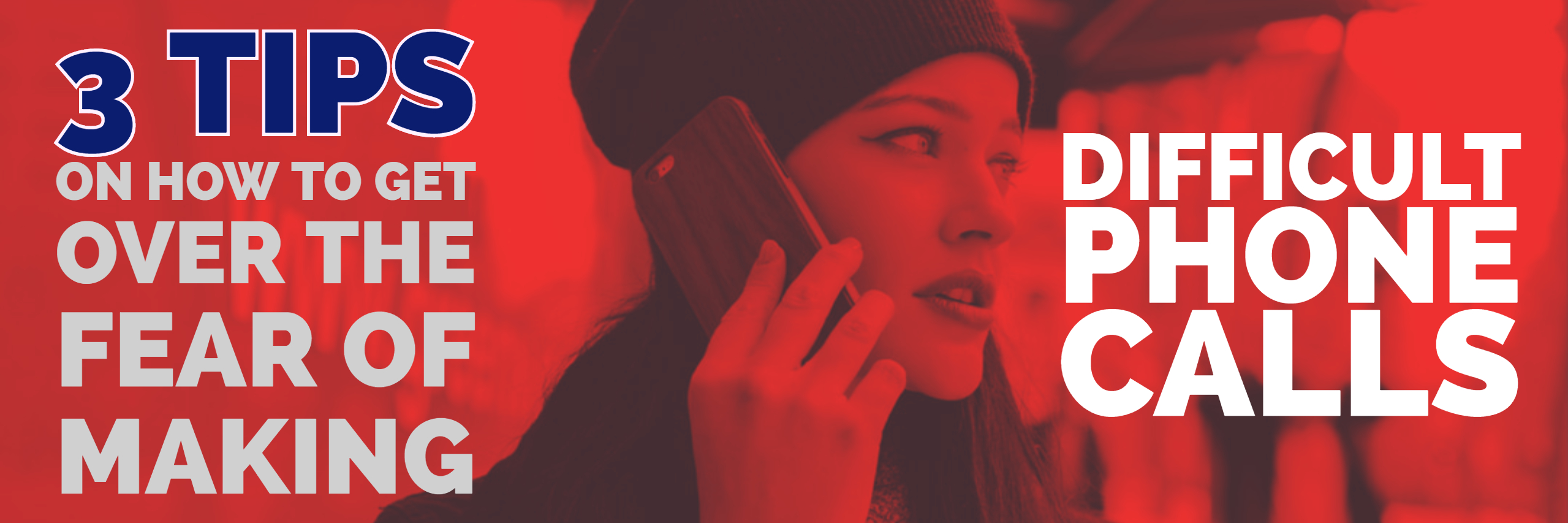We’ve all experienced it. The procrastination of having to make a phone call that we don’t want to make. We live in a world where it’s easy to hide behind a keyboard or a text message or even a tweet. I’ve seen collegiate athletes decommit on twitter and young people break up on Instagram.
“‘These days, when my kids call me, I know it’s urgent.”
This is why more than ever, it’s important to muster the courage and discipline of making the hard phone calls we don’t want to make.
Sometimes it’s because we don’t want to deliver bad news, let alone receive it. Other times it’s because we don’t want to deal with a particular person. On occasion it’s because we don’t want to be held accountable. Either way, you and I both know that nagging, dreadful feeling that comes from avoiding making a call we don’t want to make.
I am going to give you 3 tips that will motivate you to make the calls you’ve been avoiding.
Tip #1 – Stop Playing It Out In Your Head
You are not Quentin Tarantino. You are not a Hollywood producer, and chances are, you don’t write scripts for a living. I need you stop imagining all the possible scenarios of what you think will happen when you make the phone call you have been avoiding. I need you to do this because the scripts we rehearse in our heads are usually not the way the conversation goes.
Yes, you might argue that you knew that the call wasn’t going to end well, and even if you were right, I’m convinced that it didn’t play out exactly as you had imagined it to be. Conversely, how many times have you had conversations with someone, thinking it was going to go well, only to have the conversation turn into a heated debate or worse yet an argument?
All I am saying is that spending time and using energy dreaming up how a conversation is going to go is useless. Now, I’m not saying to go into a call blindly, in fact, quite the contrary. You’ll see that in Tip #3. All I am saying is that your energy is better spent on more productive activities than conjuring up a novela of what you think might happen which usually doesn’t.
Tip #2 – Stand Up
There have been quite a few studies on the benefits of standing while you work. Some support it. Some don’t. I’m not really going to argue for or against the health benefits. I am however going to tell you how it makes me feel when I am standing versus sitting down and conversing with others.
I feel in control.
Have you ever seen someone get into an argument on the phone in public? What happens? Typically they are more expressive, they use their arms, they might pace, and of course they may yell. I’m not saying that you can’t yell when you are sitting down, or that it’s even okay to yell at someone, but I am saying you respond to your bodies posture and it manifests itself in the way you speak.
If you know you are going into a conversation that might be difficult, try standing up first.
Top #3 – Be Upfront. Be Brief. Be Ready.
It is important that you know what you are going to talk about and that you address the most difficult topic(s) first.
“‘People can smell a phony a mile away.”
No one likes someone who tries to soften the blow by bs’ing for 20 minutes only to follow up feigned interest with the real reason you called.
I recommend starting your conversations with, “There’s something I need to talk to you about, can I steal 2 minutes?” Do this for two reasons:
- The other person knows you are going to drop something on them.
- It preps them for a short conversation.
The good old, “I’ve got good news and bad news, which do you want first?” doesn’t disappoint either.
It is also a good idea for you to have notes or bullet points ready prior to your conversation. This will keep your conversation brief and make sure you only discuss what needs to be discussed at that time.
There isn’t a phone call or conversation you can’t handle If you follow these simple 3 tips.
Originally published on PaulArgueta.com on 11/20/2019


